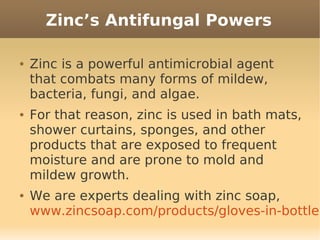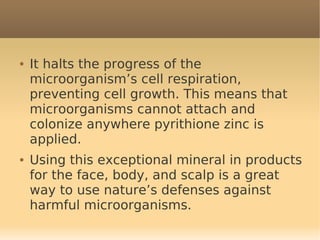Zinc is a powerful antimicrobial agent that combats many forms of mildew, bacteria, fungi, and algae. For this reason, zinc is used in bath mats, shower curtains, and other products exposed to moisture to prevent mold and mildew growth. Specifically, zinc pyrithione is commonly used due to its consistent effects on microorganisms. Unlike some antibiotics, zinc remains fully effective against microorganisms over time by halting their cell respiration and preventing colonization on surfaces.





